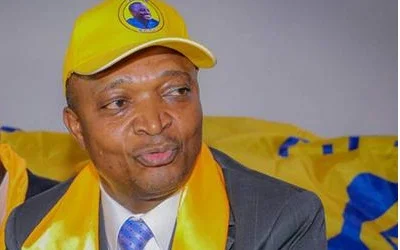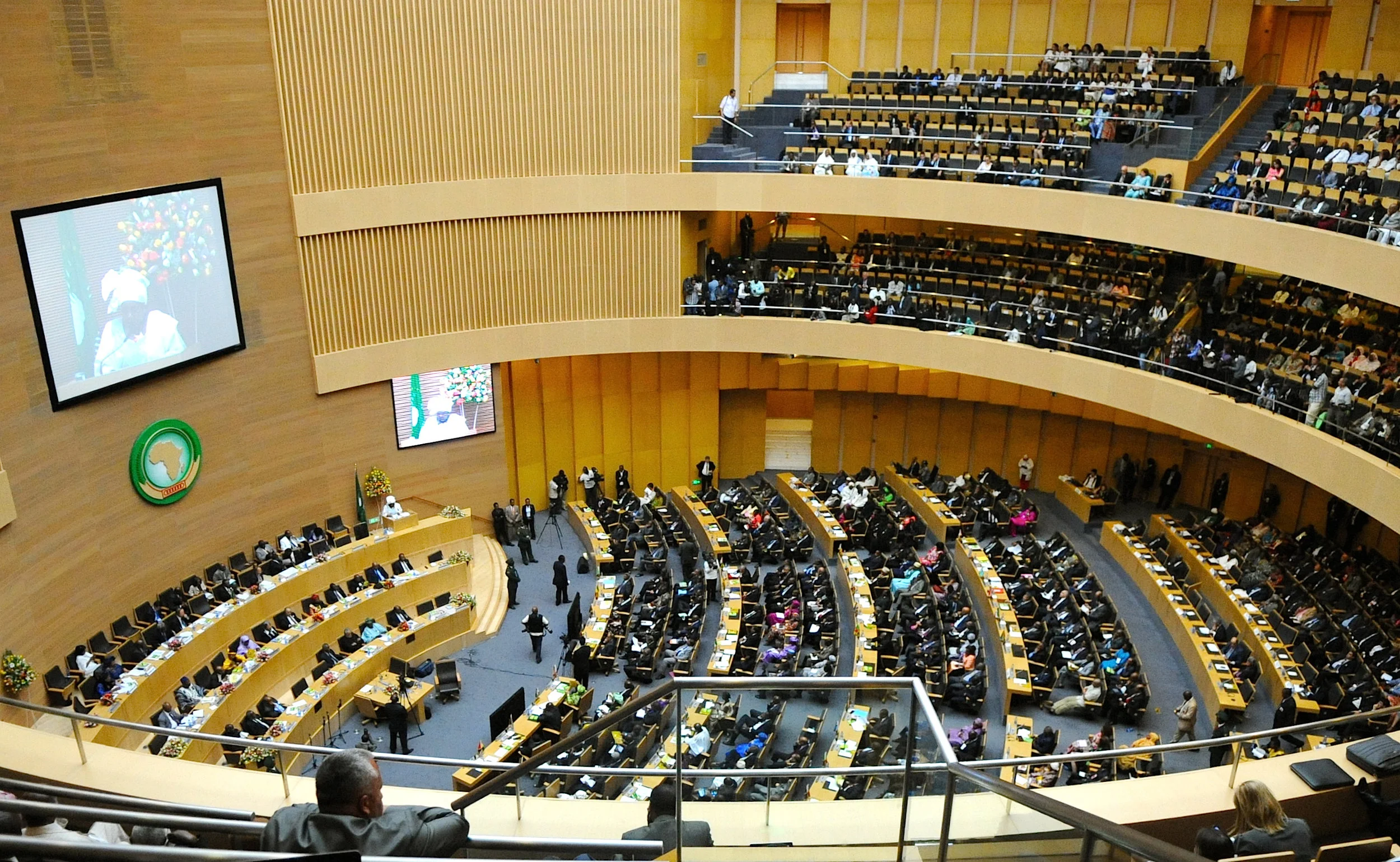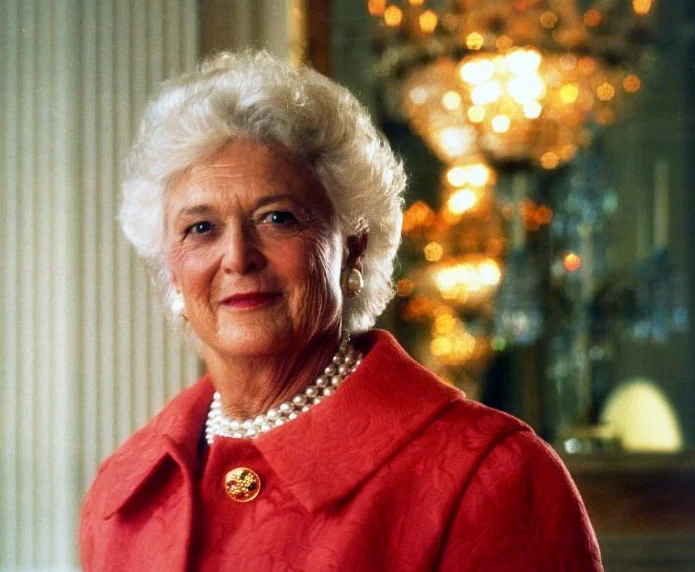Après une longue période d’incertitude, Président Kabila a décidé de ne pas essayer de réviser la constitution de la République Démocratique du Congo (RDC), dont la limite est de deux mandats à la Présidence, en se mettant d’accord de quitter le pouvoir après les élections du 23 décembre 2018 et cela deux ans après. En même temps, Président Kabila a présenté son successeur préféré, et qui sera alors le candidat de la Majorité Présidentielle, Emmanuel Ramazani Shadary.
La sélection de Kabila pour Shadary était en quelque sorte une surprise. Son nom n’était pas sur la liste de personne comme héritier possible. Cependant selon la perspective de Kabila, Shadary est le choix logique.
Read MoreAfter a long period of suspense, President Joseph Kabila has decided not to try to revise the DRC’s constitutional two-term limit on his office, agreeing to leave power after the election scheduled for December 23, 2018, two years late. At the same time, President Kabila presented his preferred successor, and who will therefore be the candidate of the “Presidential Majority,” Emmanuel Ramazani Shadary.
Kabila’s selection of Shadary was something of a surprise. His name was not on anyone’s list as a possible heir. However, from Kabila’s perspective, Shadary is the logical choice.
Read MoreThere are now six months until the DRC’s presidential election, scheduled for December 23. Candidates will file papers starting July 24. It is a good moment to review who is likely to run, and who has the best chances against Kabila’s party, the People’s Party for Reconstruction and Democracy (PPRD).
There is a crowded field of opposition candidates. Concerns are running high that they will split the general vote, enabling Kabila’s party to win with a plurality as small as 25%. Many observers are urging the opposition to unify behind a single presidential candidate who stands a good chance of defeating the PPRD.
Read MoreMonsier le Président,
J’ai appris que la Cour Suprême voudriez interviewer un Consultant Américain de Sécurité portant le nom de Daryl Lewis.
Read MoreMr. President,
I am sending you this letter as the Supreme Magistrate of the Democratic Republic of Congo and the first guarantor of fair application of justice.
Read More2018 could be seen as the 55th “birthday” of the African Union, since its predecessor, the Organization of African Unity, was established in 1963. The group’s objectives and influence have changed dramatically over those decades.
Read MoreLa crise politique en cours en République démocratique du Congo a été une des principaux sujets du jour dans les cercles des affaires étrangères de Washington pendant la semaine du 21 au 25 mai 2018. Les représentants de la société civile congolaise et de l'administration Kabila avaient assisté à un déjeuner d’un forum du Congrès américain et avait été accueilli différemment.
Read MoreThe ongoing political crisis in the Democratic Republic of the Congo was a top feature among Washington foreign relations circles throughout the week of May 21-25, 2018. Representatives from Congolese civil society and the Kabila administration appeared at a Congressional breakfast forum and were received quite differently.
Read MoreDuring George H.W. Bush’s term as President of the United States, I served as his Assistant Secretary of State for African Affairs. In that capacity, I had the privilege of being in the presence of the First Lady, Mrs. Barbara Bush, usually during visits by African heads of state when Mrs. Bush would host their spouses for coffee or tea.
Read MoreSecretary Tillerson will be taking his first official visit to Africa starting March 7, meeting with leaders in Ethiopia, Djibouti, Kenya, Chad, and Nigeria.
The State Department announced that the Secretary will be addressing issues of counter-terrorism, peace and security, good governance, and trade and investment.
The countries Secretary Tillerson is scheduled to visit, and the key issues to be addressed, reflect clear continuity in U.S. policy priorities in sub-Saharan Africa since the administrations of George W. Bush and Barack Obama.
Here is my advice to the Secretary for each of his planned meetings.
Read MoreIt is not surprising that after three years in office – three years of famine, violence, and serious political and social instability – Ethiopian Prime Minister Hailemariam Desalegn has resigned, effective with the swearing-in of his replacement within a few weeks. The regime has also announced a six-month “state of emergency,” under which political and press freedoms are severely curtailed.
What do these developments mean for the Ethiopian people?
Read MoreThis year's African Union summit, held in Addis Ababa on January 28-29, produced some international agreements worth celebrating.
Read MoreWhile President Trump's first annual "State of the Union" speech to Congress was devoted mainly to domestic economic and social issues, several of his statements could have serious implications for Africa.
Read MoreCorruption is the theme of this month's African Union meeting in Addis Ababa. It is refreshing that African leaders will discuss the subject in public. Some leaders are more committed than others to ending the cycle of graft which has dogged Africa since the colonial era.
Africa is not alone in this problem. Theft through corruption occurs in practically every nation – the early days of American industrialization were rife with graft. But in Africa, it has persisted as a potent force to stymie economic development and prosperity.
Read More(Originally published in The Hill.)
Regardless of the exact words that he used, President Trump’s disparaging statement about African immigrants who have come to the United States is at odds with reality.
Read More









